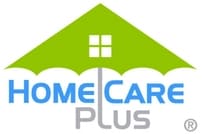Many people would rather ignore the fact that there may come a time when they can no longer care for themselves than deal with it head on. Harder still is being able to acknowledge that your health or the health of a close family member could deteriorate to the point that you or they can no longer speak for themselves. These can be tough conversations to have, and it seems that many Americans prefer to stay mute on the issue of life-threatening illness or injuries and the resulting health care needs. In fact, the Centers for Disease Control and Prevention estimates that 70% of Americans do not have an advance care plan.
Advance care planning is about you—what type of health care treatments you wish to receive should you become unable to make those decisions yourself. Discussing your health care preferences with your family can ensure that aggressive life-extending measures are only used if you want them to be used. You have a right to say where you want to die—in the comfort of your own home or in a hospital bed. Take your time thinking about what is right for you before having a family discussion. Planning ahead can give you peace of mind that your wishes will be carried out when and if the need arises.
Advanced planning can be a true blessing for your friends and loved ones. It can help them get through their grief and save them from the guilt associated with whether or not they made the right decision regarding your end of life care. By making your health wishes clearly known, you can prevent fighting and blame among siblings and other family members who might have different opinions on which actions should be taken.
The most important part of advance care planning is the creation of an advance directive. A directive should name a “health care proxy” or “durable power of attorney for health care,” the person who you want to speak on your behalf should you become unable to do so. This should be someone you trust deeply and with whom you have clearly made your health care wishes known. Give a copy of your advance directive to your proxy, health care team and anyone else who might be intimately involved with your care.
For more information on advance care planning, visit the CDC’s Healthy Aging section of their website.
- Making Strides of Charleston - October 22, 2021
- Watching out for Scammers - May 5, 2021
- Sleep and Tiredness - April 13, 2021


